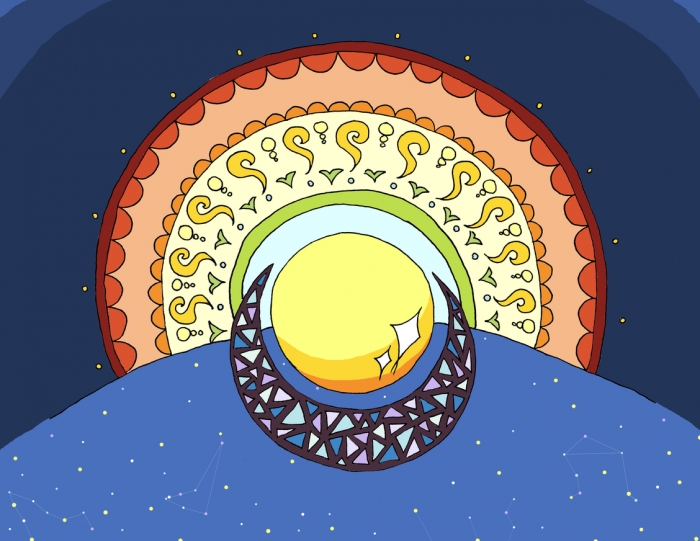We fear the possibility of dying before we’ve accomplished everything we want to do. Or we fear the possibility of a loved one dying before they are able to see us accomplish everything we want to do. Both are paralyzing fears—and ultimately futile.
When I was in high school, my father was diagnosed with Glioblastoma Multiforme (GBM), the most common and also the most aggressive type of malignant brain tumour. These types of tumours grow incredibly fast and in such a way that makes it difficult to target them through surgical procedure. Only 30 per cent of GBM patients live to see the two years following their diagnosis. My father passed away in May 2014, just hitting the two-year benchmark in the final months of my senior year.
During the first of those two years, he underwent three taxing surgeries, each a desperate attempt at extending a life that was inevitably hurtling toward its close. His chemotherapy treatments placed him at a high risk for infection and deadly internal bleeding. On top of this, radiotherapy subjected him to further brain damage than that provoked by his tumour, resulting in violent mood swings and irreversible changes in his character.
These concerted efforts toward fighting off his death, all classical medical responses to GBM diagnoses, made those two years all the more distressing for my father and for my family. The process of watching him die was drawn-out; it felt exhausting and unnecessary. All that the aggressive treatment achieved was to generate false hope that he might recover. By living out a scenario that merely delayed the inevitable, I forgot that death is invincible, no matter how hard we fight it. A franker dialogue in our culture about the pervasiveness of death might have helped to fend off such an illusion.
Ultimately, it is impossible to separate the arrival of death from the act of living, so we find ourselves under the obligation to incorporate it into the way we lead our lives. The way we choose to die is meaningful—it impacts us and the ones we leave behind—but we can’t die the way we want to if we don’t acknowledge its looming presence in the time that we have. The same goes for mourning the death of a close friend or family member: By fighting off the reality of their death, we only make it that much more painful for ourselves when we finally have to face the hole they leave in our life.
It’s not just a question of embracing the reality of death, but of celebrating it. We need to allow death to take up space in the life that we live now, rather than shrugging it off as an immaterial likelihood, or a project to handle another day. A 2007 study, conducted by professors from the University of Kentucky and Florida State University, finds that the acknowledgment of our mortality induces a positive emotional reaction. If we dedicated even the tiniest portion of our day to admitting that life and death go hand in hand we would—somewhat counterintuitively—actually feel happier.
When faced with an impending death, the immediate reaction is often an instinctive fight or flight response. Our culture conflates the approach of death with a sense of urgency to fulfill those projects we have not yet had time to complete, or love those who we have not yet had time to love enough. Instead of letting the sudden realization of the oncoming reality of death bring goals and regrets into focus, it is important to face them head on—to book that trip to South Africa, or to read that copy of War and Peace sitting forlorn on the bookshelf.
Mourning can’t be hurried; we must deal with the passing of our loved ones at a pace that feels comfortable, expressing anger and sadness at their loss along the way. Western culture simply doesn’t understand death and grief, making it even harder to handle them as an individual. We are made uncomfortable by public displays of emotion—sadness in particular—and social etiquette dictates that we tiptoe around the issue by using euphemisms. But, if we make concerted efforts to think and talk candidly about death together, we can make its entrance into our collective lives less jarring, and create a more supportive environment for those who witness and suffer in its aftermath.
In a poem composed for his dying father, Dylan Thomas implores that he “do not go gentle into that good night,” but that he “rage, rage against the dying of the light.” Thomas has it all wrong: We shouldn’t fight off death, we should understand and accept it. Taken this way, death can be the ultimate motivation to live meaningfully.









